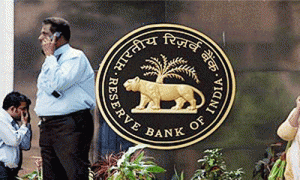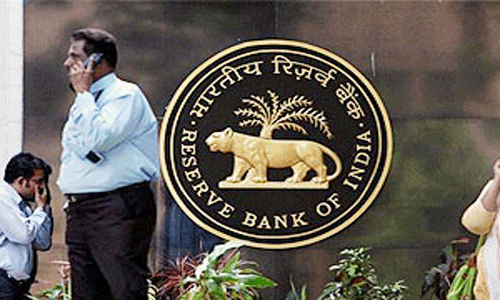By: Ravi Sinha
Track2Realty Exclusive
 When the Reserve Bank of India (RBI) was to announce its annual monetary policy for 2012-13 on 17th April, there were widespread concerns of slowing economy, rising inflation, trade deficit of 4 per cent of GDP and drying FDI too emerging as a grace concerns. Last week only a RBI report had pointed out that FDI could have been 35 per cent higher than was actually received last year if the government had not increased “policy uncertainty”. However, the Finance Minister put considerable pressure on the RBI to cut rates, as a result of which unexpected repo rate cut of 50 basis points was offered.
When the Reserve Bank of India (RBI) was to announce its annual monetary policy for 2012-13 on 17th April, there were widespread concerns of slowing economy, rising inflation, trade deficit of 4 per cent of GDP and drying FDI too emerging as a grace concerns. Last week only a RBI report had pointed out that FDI could have been 35 per cent higher than was actually received last year if the government had not increased “policy uncertainty”. However, the Finance Minister put considerable pressure on the RBI to cut rates, as a result of which unexpected repo rate cut of 50 basis points was offered.
Two theories are making rounds on the unexpected rate cut, the first in the last three years. One section of market analysts believe that the action is more a result of the pressure than real conviction. The caveats offered by the RBI that there was a need to increase fuel prices for macro economic stability backs up that suspicion. Another school of thought finds that falling manufacturing output and slow growth has pushed RBI to cut benchmark rates that could reduce cost of borrowing for corporates and individuals.
However, beyond these macroeconomic pulls and pressures, the repo rate cut has definitely cheered up the home buyers, both the home aspirants and also those who are already reeling under an increased EMI burden. What is all the more significant from home buyers’ perspective is that accepting the Damodaran Committee recommendations to abolish foreclosure charges levied by banks on prepayment of home loans, the RBI has instructed banks to not levy foreclosure charges/pre-payment penalties on home loans on a floating interest rate basis. It practically means that if you want to close an existing loan by borrowing from another bank as it is offering a lower interest rate, you would not be required to pay any penalty to the existing bank.
Prima facie it seems to revive the housing market across the country and hence the real estate in particular should have whole heartedly welcomed it. But the reaction of the sector, often at loggerheads with the government at the moment on many contentious issues including regulatory bill, has been that of cautious optimism. Some of them have actually looked at the glass half empty. The moot point is whether the move will help revive the housing demand?
The industry body CREDAI (Confederation of Real Estate Developers’ Associations of India) has welcomed the repo rate cut, but wants CRR cut too. Calling it a step in the right direction, Lalit Kumar Jain, National President, CREDAI says he would expect the banks to act immediately and cut rates of interest to facilitate both the home buyer and developer community.
“It is equally important for the Reserve Bank to cut CRR to increase liquidity in the market. Cash crunch is one of the biggest problems being faced by the real estate industry in particular and the economy in general. The central bank should go in for immediate financial reforms for the real estate industry and help developers and home buyers get over the current crisis related to high cost of funding and construction,” says Jain.
Anurag Mathur, Managing Director, Cushman & Wakefield India feels after a lukewarm budget, the real estate market finally has something to cheer about with the RBI’s Repo rate cut of 50 basis points. “The resulting reduction in interest rates that banks are expected to pass on to consumers will provide a positive boost to market sentiments and result in some transaction activity in the residential sales markets. For the whole of last year, end buyers had to defer their purchase decisions as they were facing the double-edged sword of rising interest rates and stubborn price levels. Whilst some of these buyers may still hold out for a while longer to see if there are further rate cuts, we expect to witness some pickup in the volume of sales transactions.”
Gaurav Mittal, Managing Director, CHD Developers and member, Governing Council, CREDAI feels elated that the RBI has taken cognizance of the needs of the industry and announced a 50bps cut in the Repo Rate, bringing it to 8%. According to him this much awaited step will certainly boost liquidity in the market.
“The step is slated to be beneficial for both the buyers as well as the developers who have been struggling with cash crunch in recent times. This significant move would reduce the cost of funds to home buyers as well as developers as it will allow the banks to lower down the interest rates. Removal of the pre-payment penalty clause will spread cheer amongst developers and would ensure fresh loans and hence boosting the market,” says Mittal.
Deepak Shah, Director, Sumer Group goes a step further in appreciating the RBI when he says this welcome move for the real estate will also help allied industries. “The demand for housing is picking up and with the reduction in the rate, if passed on to the customers, will bring positive sentiments. However, even the current rates are too high in comparison with the last year. But the difference is that the rates last year were moving upward and now they are moving downward. It will be encouraging if the inflation rate remains in control and so RBI can reduce the rates gradually over the time,” says Shah.
Om Chaudhry, Founder & CEO,FIRE Capital and Chairman, Astrum Homes feels real estate will be a key beneficiary where developers’ short term liability will be eased while the customer interest in purchases shall also go up. “Bringing much needed cash flow into the sector, it shall also help push incremental demand as the overall business environment shall start to look up and real estate being a major asset class will gain substantially. Nonetheless these continue to be cautious times as depreciating rupee and volatile inflation level which threatens input costs will continue to be counter weights to such a positive step,” says Chaudhry.
Manoj Paliwal, CFO, Omkar Realtors & Developers gives an interesting twist to the discussion when he says though repo rate cut has been unexpected, the expectation was towards cut in CRR. “However, considering the current limited scope available to RBI due higher inflation and lesser liquidity, the step taken towards bringing down the cost is appropriate. For developers and end buyers, it is a small positive gesture,” says Paliwal.
David Walker, Executive Director, SARE Homes also believes the RBI’s decision to cut the repo rate by 50 basis points and abolish pre-payment penalties is positive news for the home buyers. “This action will not only improve cash flow tremendously, but also encourage home buyers to buy properties. We are expecting that the bankers will also consider softening the interest rates for home loans in the near future, to further strengthen the market sentiments,” says Walker.
Simon Rubinsohn, RICS Chief Economist looks at it from a macro-economic perspective when he says the decision should provide a timely boost for the economy which is continuing to labour under the weight of a weaker investment climate and the government’s fiscal consolidation plans.
“While it is likely that this move from the central bank will feed through into somewhat lower lending rates, there are good reasons to question how aggressive Indian banks will be particularly as deposit growth has recently been pretty weak. As a result, the headline loan to deposit ratio is now at pretty much an all-time high,” says Rubinsohn.
MCHI-CREDAI President Paras Gundecha also feels the high cost of funding is one of the main causes of rising real estate prices, and also welcomed the RBI decision to scrap pre-closure of loans and felt that this could lead to competitive rates of interest and leave customers with the choice of picking their banks for availing loans.
Naushad Panjwani, Executive Director, Knight Frank India believes this rate cut does not affect the fundamentals of the realty market as market has seen a steady off-take in housing loans despite the high interest rates and real estate prices. According to him this cut will only give it an extra fillip. However the larger impetus will come from the other measures.
“At present, UCBs are permitted to assume aggregate exposure on real estate, commercial real estate and housing loans up to a maximum of 10 per cent of their total assets with an additional limit of 5 per cent of their total assets for housing loans up to 1.5 million. In order to facilitate enhanced priority sector lending, it is decided: to permit UCBs to utilize the additional limit of 5 per cent of their total assets for granting housing loans up to 2.5 million, which is covered under the priority sector,” says Panjwani.
Om Ahuja, CEO – Residential Services, Jones Lang LaSalle India says the series of hikes in the past have also affected the price that builders put on their properties, since their own cost of borrowing has increased. “It is unlikely that property prices will come down because of this rate cut, and it is the price of properties that is the decisive factor in residential real estate sales. In fact, it is very likely that there will be an upward bias on property rates because of the anticipated improvement of sentiments with buyers who have so far been sitting on the fence, waiting for some signals of relief,” says Ahuja.
There is no conclusive evidence yet in the real estate market whether lower interest rate actually leads to increased sales graph. However, what can be conclusively vouchsafed is the fact that beyond macro-economic pulls and pressures and realtors’ own cost-benefit analysis, the RBI’s rate cut has definitely cheered up the home buyers, more so to the existing buyers reeling under the increased EMI.






4 Comments
Its such a gud news 4 home buyers.
Very well written …..i m agree with u and other developers views .
Removal of pre-penalty clause is bigger relief than repo rate cut.
Even banks will be tamed now who are confusing customers with floating interest rate.